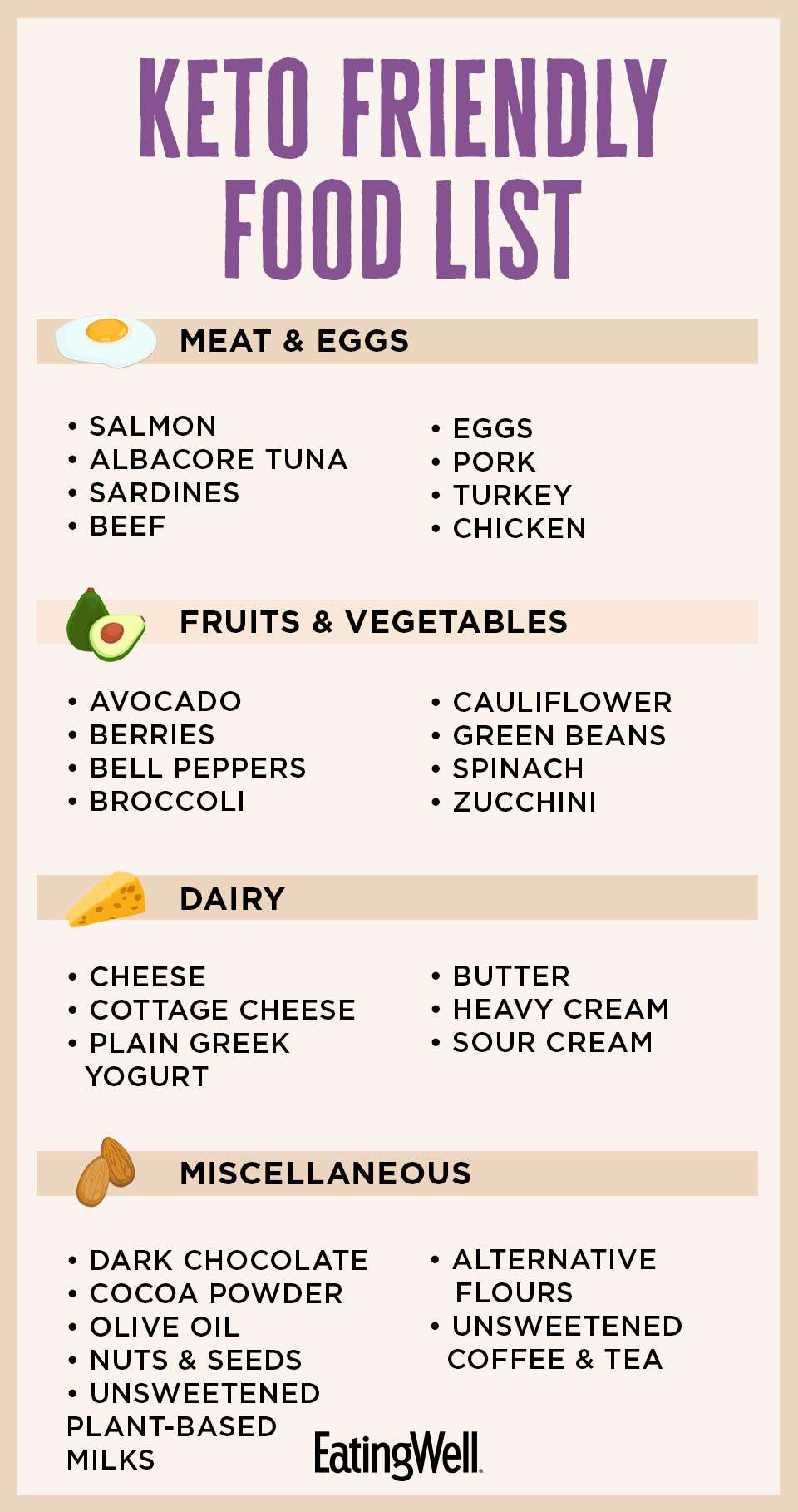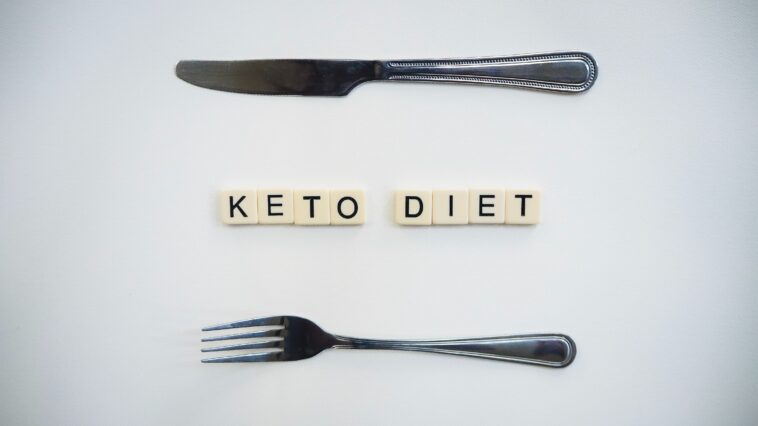In this extremely low-carb, high-fat diet, fat is returning. Learn about the items you can consume on the keto diet plan, if it would be beneficial for you, and what to expect if you decide to give up carbs in favor of fat.
The ketogenic diet, sometimes known as the keto diet, is returning as one of the trendiest diet trends in America after years of being limited to therapeutic nutrition in hospitals.
The diet was developed in the 1920s as a means of treating pediatric epilepsy, and because of its remarkable effectiveness (those following a ketogenic diet had 30% to 40% fewer seizures), it is still utilized in that field today.
What about its application to the generally healthy populace who only want to live longer or get more out of life? Let’s break down this extremely low-carb, high-fat diet piece by piece.
What Is the Keto Diet?
The ketogenic diet has extremely high fat intake (about 80% of daily calories), extremely low carbohydrate intake (less than 5% of calories), and moderate protein intake (15–20% of calories, on average). This is quite a deviation from the typical recommendations for the proportions of protein, carbs, and fat, which are respectively 20% to 35%, 45% to 65%, and 10% to 35%.
A normal and organic process known as ketosis is the most crucial element of the ketogenic diet. Typically, glucose fuels the body fairly efficiently. When the body breaks down carbohydrates, glucose is created. The body prefers to manufacture energy this way since it is a fairly easy procedure.
Your body searches for alternative energy sources to make up the difference when you reduce your carbohydrate intake or haven’t eaten in a while. Usually, the source is fat. Fat is released from your cells and floods the liver when your blood sugar lowers as a result of not consuming enough carbohydrates. Your body uses ketone bodies as a backup source of energy after converting fat into ketone bodies in the liver.
What Foods Can You Eat on the Keto Diet Plan?

A typical keto diet program includes:
- Meat
- Fish
- Butter
- Eggs
- Cheese
- Heavy cream
- Oils
- Nuts
- Avocados
- Seeds
- Low-carb green vegetables
All of your favorite high-carb items are excluded from this brief list, including grains, beans, potatoes, sweets, milk, cereals, fruits, and even some vegetables (see our full list of keto-friendly and keto-incompatible foods).
What Are the Potential Benefits of the Keto Diet?
The keto diet is indeed difficult, but research indicates that in addition to being used to treat epilepsy, it may also have certain therapeutic advantages. Here are few study areas where a ketogenic diet appears promising.
Alzheimer’s Disease
According to research, eating a ketogenic diet greatly improves cognitive function in Alzheimer’s sufferers. This is thought to be related to enhancing mitochondrial function by giving the brain fresh fuel.
Parkinson’s Disease
The aberrant buildup of the protein alpha-synuclein is one of the main characteristics of Parkinson’s disease. It has been investigated whether a ketogenic diet encourages the breakdown of these proteins, lowering the concentration of alpha-synuclein in the brain through research supported by the Michael J. Fox Foundation for Parkinson’s Research.
Multiple Sclerosis
Patients with relapse multiple sclerosis (MS) were placed on a ketogenic diet in a small 2022 research. They reported better physical and mental health, as well as an improvement in life quality, after six months. Larger sample sizes and more in-depth analysis are required before doctors and researchers can draw any conclusions on the link between keto and MS. Yet, the early results are intriguing.
A diet that has such a high emphasis on meat and fat is naturally believed to elevate blood cholesterol and lead to heart problems, therefore this is a topic of uncertainty and debate. Nonetheless, some data hints that this might not be the case. In reality, the triglyceride, HDL, and LDL levels may be improved by the keto diet. The ketogenic diet may be linked to some improvements in cardiovascular risk factors, according to a 2017 study that examined all the data on the diet’s relationship to cardiovascular health. However keep in mind that the scientists also raised questions about long-term diet maintenance and suggested that these advantages might not endure. We obviously require long-term research to close that gap.
Type 2 Diabetes
Since the keto diet is as low-carb as it gets, this population has been the subject of extensive research. Evidence suggests that an ultra-low-carb diet (like the keto diet) may help reduce A1C and increase insulin sensitivity by as much as 75%, despite the fact that research has only been done with very small sample sizes. In fact, a 2020 study discovered that weight loss and improved glucose and cholesterol control were both linked to the keto diet. Having stated that, additional study is required.
Cancer
The keto diet may have anti-tumor benefits, possibly as a result of its reduction in overall calorie consumption (and circulating glucose, which is necessary for tumor growth). This is shown by preliminary experimental study. However, as stated in the Current Opinion of Clinical Nutrition and Metabolic Care, not all cancers respond to the benefits of a ketogenic diet (2019). Some studies revealed that the ketogenic diet had little effect on liver tumor growth, such as the randomized controlled study involving rats that was published in Cancer in 2018. It’s certainly fuel for thought, but larger sample sizes and more human study are required.
Will the Keto Diet Help You Lose Weight?
The claim that you can lose a lot of weight in a short amount of time is one of the keto diet’s main selling points and a major factor in its popularity. Is that, however, an overstatement?
Numerous studies have suggested that adopting a low-carbohydrate diet (like the keto diet) may cause weight loss without impairing athletic performance, including study that was published in the Journal of Strength and Conditioning Research. Positive, yes? So, it’s not quite apparent that this is the case, but weight loss is only beneficial if the momentum is long-lasting.
According to a Cureus review from 2020, people who followed the ketogenic diet may have lost weight and displayed improvements in their triglyceride, blood pressure, and good (HDL) cholesterol levels. These gains, however, were not shown after a year, indicating that longer-term research are required to demonstrate the diet’s efficacy.
Let’s examine some of the reasons why using keto as a weight-loss strategy may be effective for some.
- Calorie Restriction: When you severely restrict your food intake by cutting out many categories of food, you’re quite likely to lose weight.
- Water Loss: There is some evidence that higher-protein diets like the keto diet may have some weight-loss benefits, partially because both fat and protein are satiating, so you don’t feel hungry, but also because of the loss in glycogen stores. Glycogen is the body’s glucose storage that is bound up with water, so when we deplete the glycogen, you also deplete your water storage. Lose a ton of water, and you’re going to drop weight fast.
- Appetite Control: In addition to the satiating capabilities of fat and protein, research suggests that the keto diet may help suppress the hunger hormone, ghrelin. For people who are always hangry, this is a really big plus.
Read More: 30 Healthy Low-Carb Foods to Eat
What Negative Effects Can the Keto Diet Have?
Unfortunately, it can’t all be rainbows and unicorns. Here are some potential side effects and dangers of eating keto.
Athletic Performance Impediments
Going keto may be difficult for individuals who train hard and frequently. Carbohydrates serve an equally crucial function in muscle building as protein because they cause the release of insulin, which helps protein enter muscles more quickly. Also, it aids in storing more glycogen for longer workouts, marathons, or climbs. While research on the keto diet’s long-term effects is scarce, a thorough assessment of the literature in the field of sports nutrition indicated that in the short term, it performs worse than other diet regimes on anaerobic, aerobic, and in some cases even strength performance tests.
Keto “Flu”
When you move to utilizing ketones frequently, you often feel sick since your body isn’t used to it. The electrolyte balance may be impacted by the keto diet as well, resulting in fatigue, headaches, nausea, and brain fog. Moreover, keto dieters sometimes lament having foul breath, sweat, and urine due to the by-product of fat metabolism (acetone) leaking out. Fortunately, this impact only lasts a short time, so you won’t have to worry about smelling bad forever.
Constipation
Nobody like feeling behind schedule, but if you don’t take care when switching to a ketogenic diet, it might start to bother you on a daily basis. Thankfully, switching to a ketogenic diet won’t permanently damage your bowels. Increase your intake of fiber-rich vegetables and think about taking a supplement because you’re eliminating whole grains and fruit, two of the most prevalent sources of fiber.
Nutrition Deficiencies
When you cut out food, as with any really tight diet, there’s a considerable possibility you’ll miss something significant. What you need to watch out for is listed below.
Sodium
You may be deficient in salt, believe it or not, depending on your diet. Low carbohydrate intake prevents insulin from being excreted, which causes the kidneys to absorb less sodium and potassium and excrete more of it as waste, making you feel lightheaded, exhausted, and cranky. Try liberally sprinkling your food with sea salt rather than reaching for more manufactured foods.
Potassium
You might not eat enough fruits and vegetables while on the keto diet because the list of permitted items is so short. among the major effects? a lack of potassium—and all the delightful diarrhea and cramps that go along with it. To get your potassium fix, try increasing your consumption of foods like spinach, avocado, tomatoes, kale, and mushrooms.
Vitamin C
The majority of our vitamin C intake comes from a wide variety of fruits, so if you stop eating them completely, you’ll need to increase your diet of vegetables to make up for it. To make sure you get your fill, eat more broccoli, Brussels sprouts, cauliflower, and cabbage.
Unhealthy Eating
The keto diet can undoubtedly interfere with your connection with food, as with other restricted eating habits. It is also possible to foster orthorexic tendencies and an excessive obsession with food by severely limiting or eliminating entire food groups from your diet.
Given how restrictive it is, it also obstructs some of the social components of eating. On your birthday, no cake. On Thanksgiving, no pie. On Valentine’s Day, no truffles made of chocolate. That is a no-no! The restriction of this diet may be emotionally damaging if you believe yourself to be someone who loves to eat and finds great delight in the social experience of a satisfying meal.
Who Is Not a Good Candidate for a Keto Diet?
You should always get the go-ahead from your doctor before beginning a new diet. This is especially true for some groups of people for whom the ketogenic diet might not be a good choice. They consist of, but are not restricted to:
- Fat is more difficult for the body to digest than other macronutrients, so those who have gallbladder or pancreatic disorders may find it difficult to digest fat.
- Women who are expecting or nursing:
- Early animal models suggest some metabolic changes occur during ketosis that may have an impact on embryonic growth, however research is still in its infancy.
- At this stage of your life, you shouldn’t take a chance on undernourishment because poor nutrition and rapid weight loss can affect your ability to provide milk and slow down your child’s growth.
- healthy youngsters:
- Never let your child start a diet, especially one as radical as the ketogenic diet.
- Individuals with kidney problems: Because the keto diet alters the balance of salt, potassium, and fluids, those who are prone to kidney stones may want to avoid it.
- Individuals with a history of disordered eating: As previously indicated, the extreme nature of the keto diet and any other diet that drastically restricts or limits foods may feed concerns about disordered eating.
- Individuals undergoing bariatric or gastrointestinal surgery: Due to the body’s difficulty in digesting fat, patients experiencing gastrointestinal or bariatric surgery should avoid the ketogenic diet.
The Verdict on Keto
It appears that we are only beginning to appreciate some of the possible therapeutic roles of the keto diet from our early understanding of the studies and literature on it. There is no one-size-fits-all diet, despite the fact that it’s uncertain if it’s better or worse for weight loss than any other diet. This ignores the fact that diets for weight loss don’t actually work in general. Although academics disagree on a precise number, it is generally acknowledged that the majority of dieters eventually gain back the weight they have lost (and often pack on extra pounds, as well). The keto diet’s long-term results are probably not going to differ from those of other diets, especially given how difficult and constricting it is to follow.
We suggest? Avoid completely giving up carbohydrates if you enjoy them. Learn how to choose the most satiating kind of healthy carbohydrates to nourish you and make healthier carbohydrate choices more frequently. And if you want to attempt the keto diet, speak with a trained dietitian for advice on how to follow it correctly and healthily.







GIPHY App Key not set. Please check settings